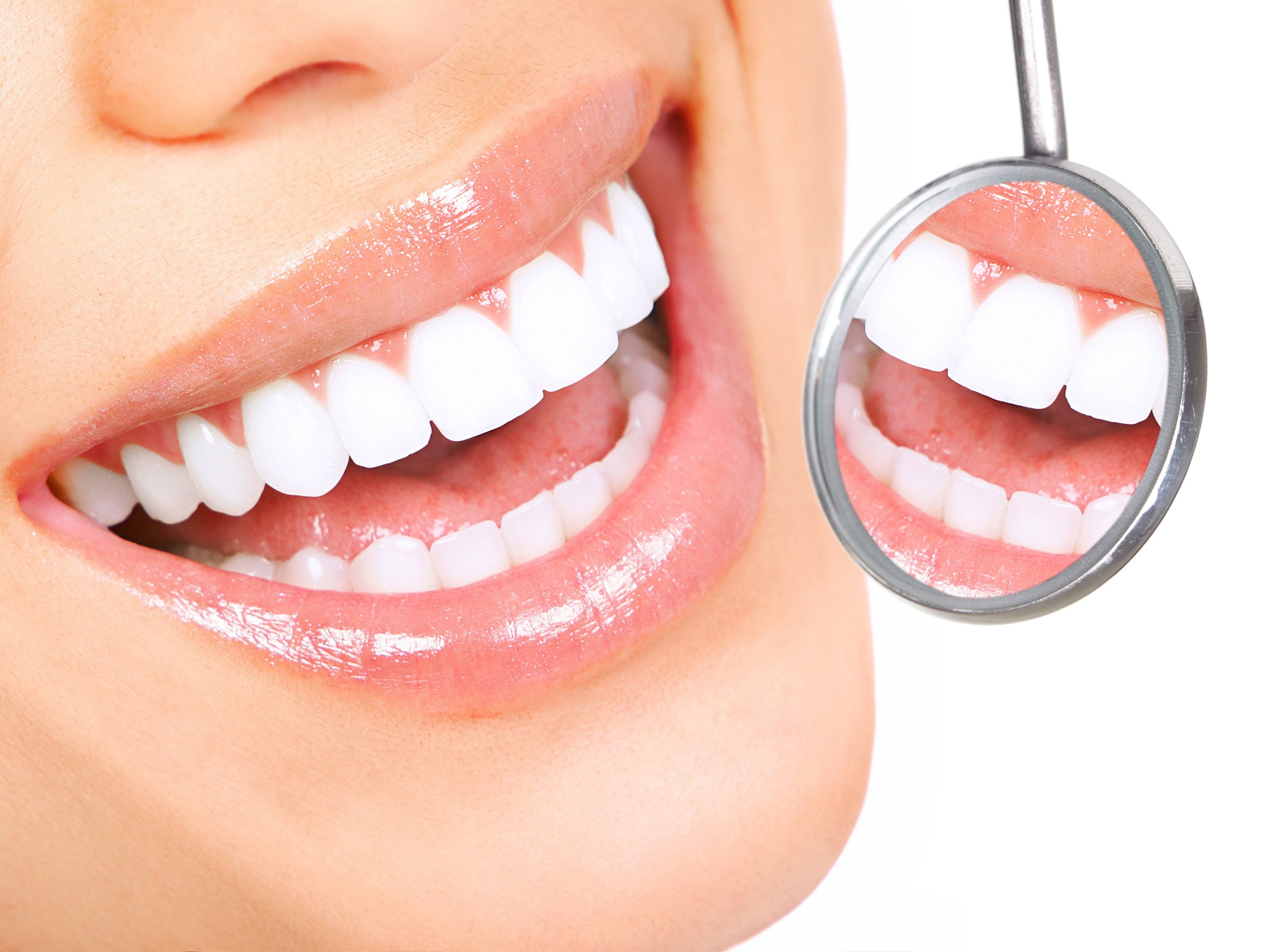
1. Go On a White-Teeth Diet
What goes into your mouth shows up on your teeth. So if you’re drinking a lot of red wine or black tea, or smoking cigarettes, expect the results to show up as not-so-pearly whites. Other culprits include colas, gravies and dark juices. The bottom line: if it’s dark before you put it in your mouth, it will probably stain your teeth. Step one: brush your teeth immediately after having foods that stain. Step two: regularly use a good bleaching agent from your dentist. Step three: be conscious of tooth-staining foods and drinks, and have them only when a toothbrush is around. If not, have an apple for dessert.
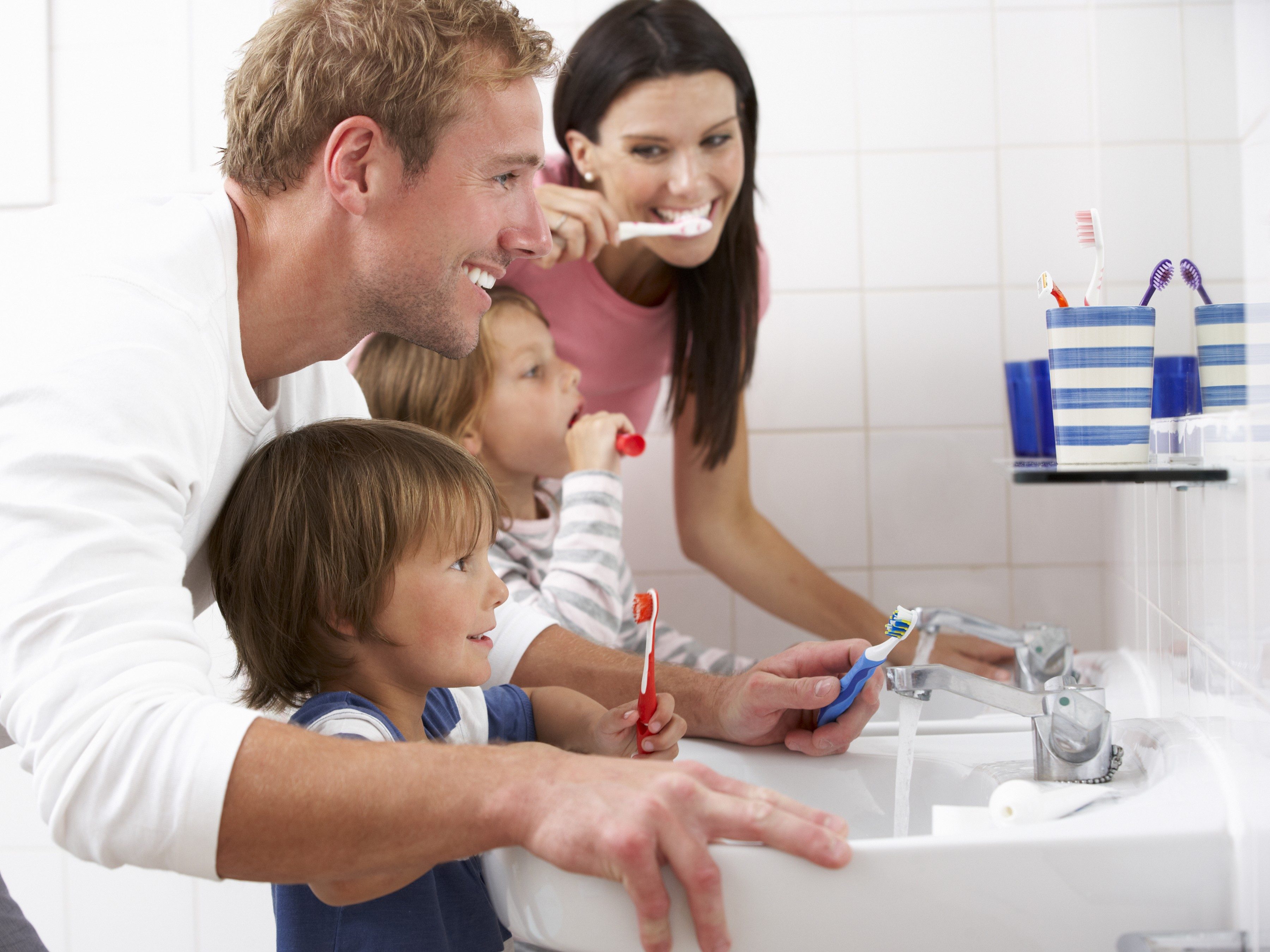
2. Hum While Brushing Your Teeth
You should give yourself at least two minutes to fully brush your teeth: That’s how long it takes to sweep all of the bacteria-packed plaque off of your pearly whites. Use your watch or keep a timer in the bathroom and set it for two minutes. Or find a tune that lasts about that long and hum it to the end!
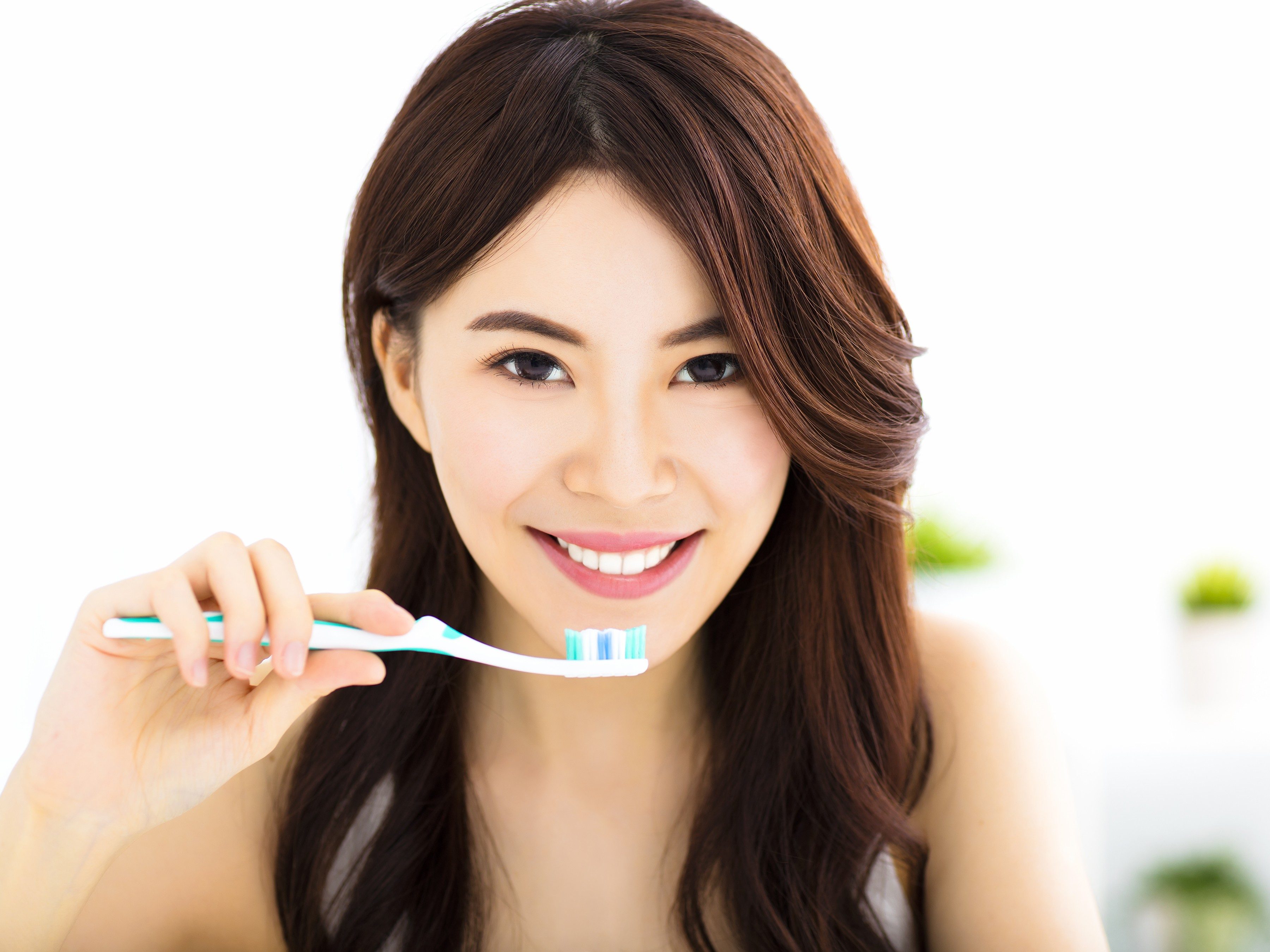
3. Grip Your Toothbrush Like a Pencil
Does your toothbrush look as if it’s been used to clean the car? If so, you’re probably brushing too hard. Contrary to what some scrub-happy people think, brushing with force is not the best way to remove plaque. The best way is to place your toothbrush at a 45-degree angle against your gums and gently move it in a circular motion, rather than a back-and-forth motion. Grip the toothbrush like a pencil so you won’t scrub too hard.
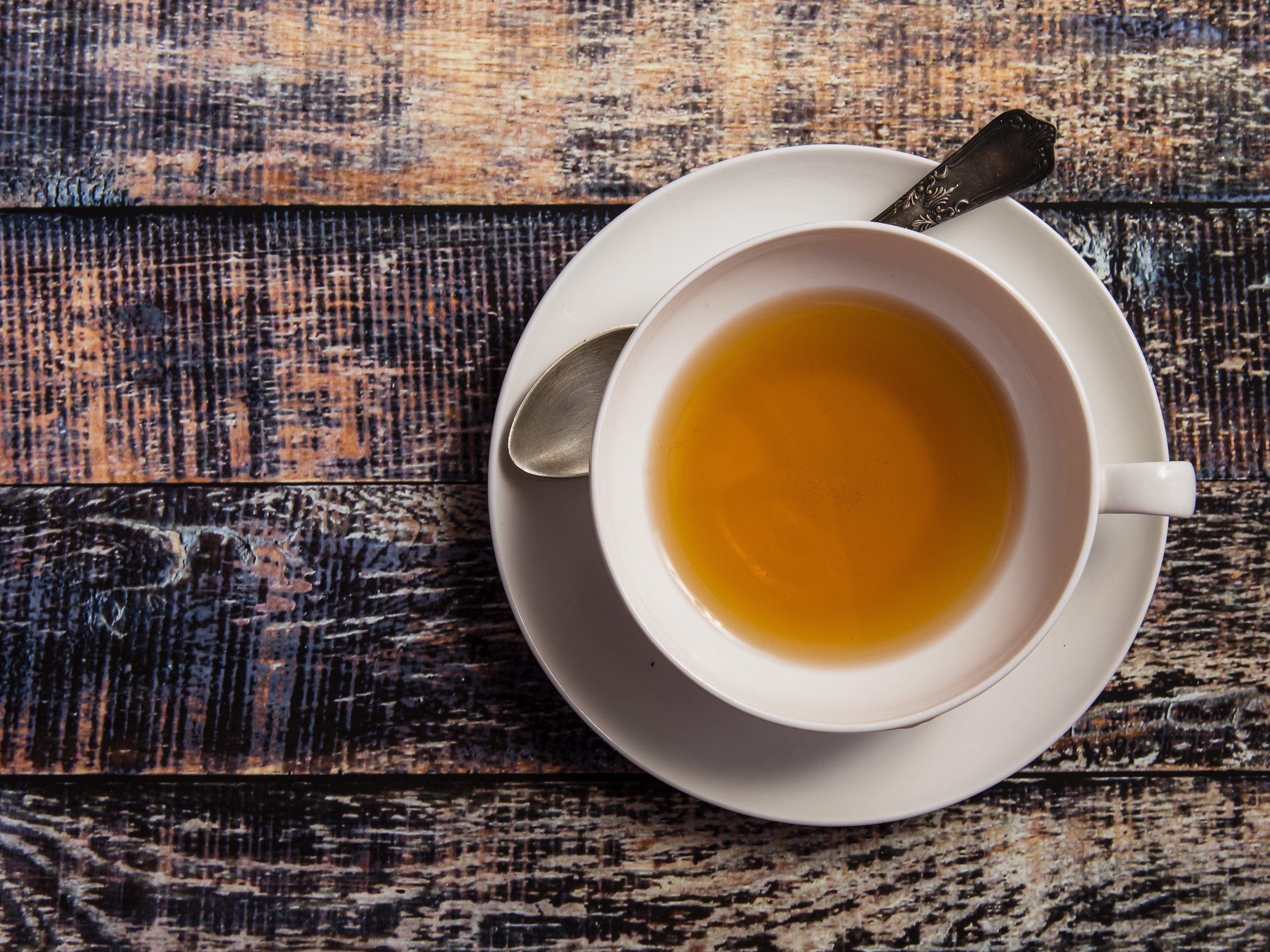
4. Drink a Cup of Tea Every Day
Flavonoids and other ingredients in tea seem to prevent harmful bacteria from sticking to teeth, and also block the production of a type of sugar that contributes to cavities. Tea also contains high amounts of fluoride.
Check out more Health Benefits of Tea!
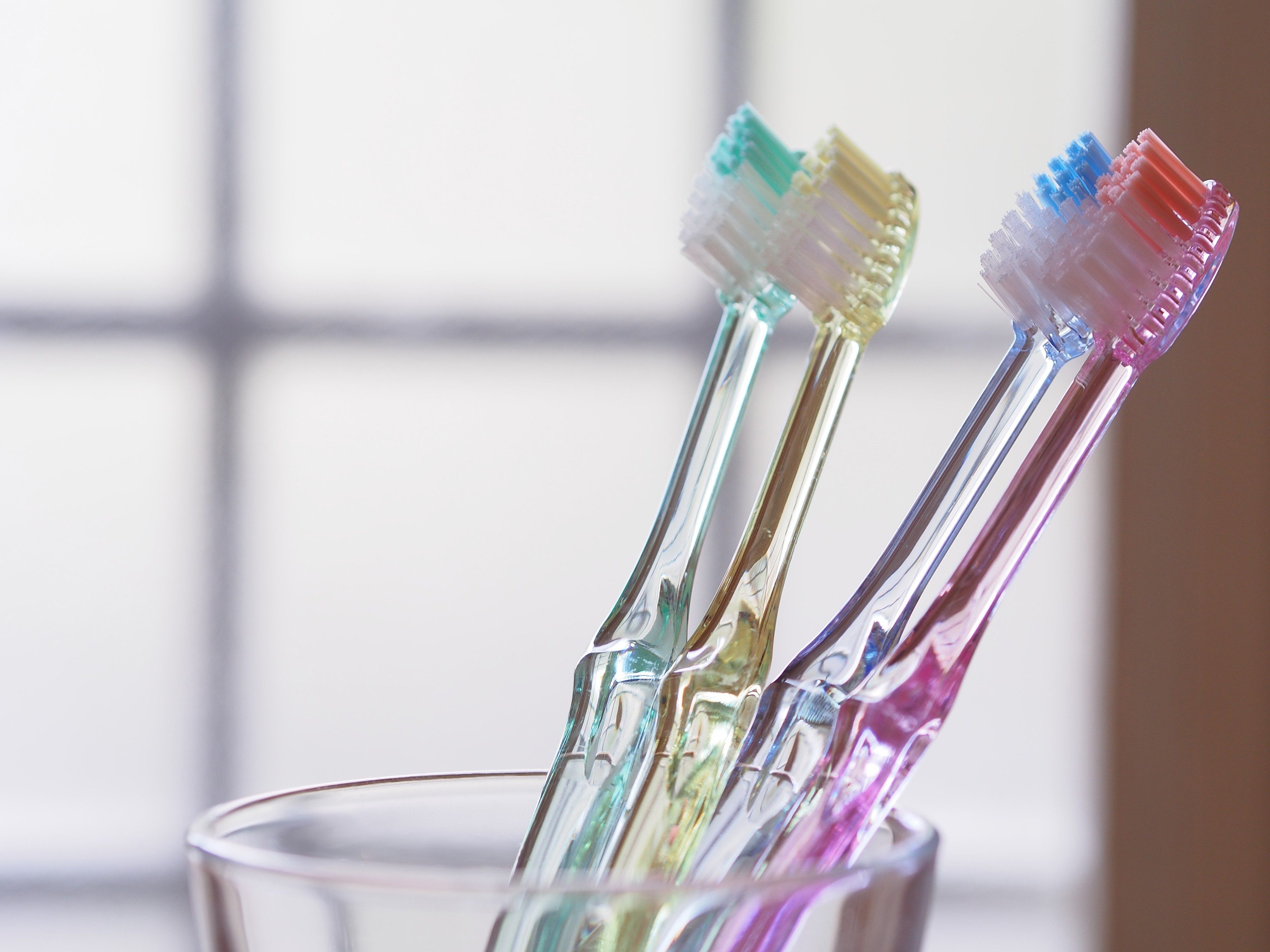
5. Replace Your Toothbrush Regularly
Throw away your toothbrush or change the head of your electric toothbrush every two to three months. Otherwise, you’re just transferring bacteria to your mouth.
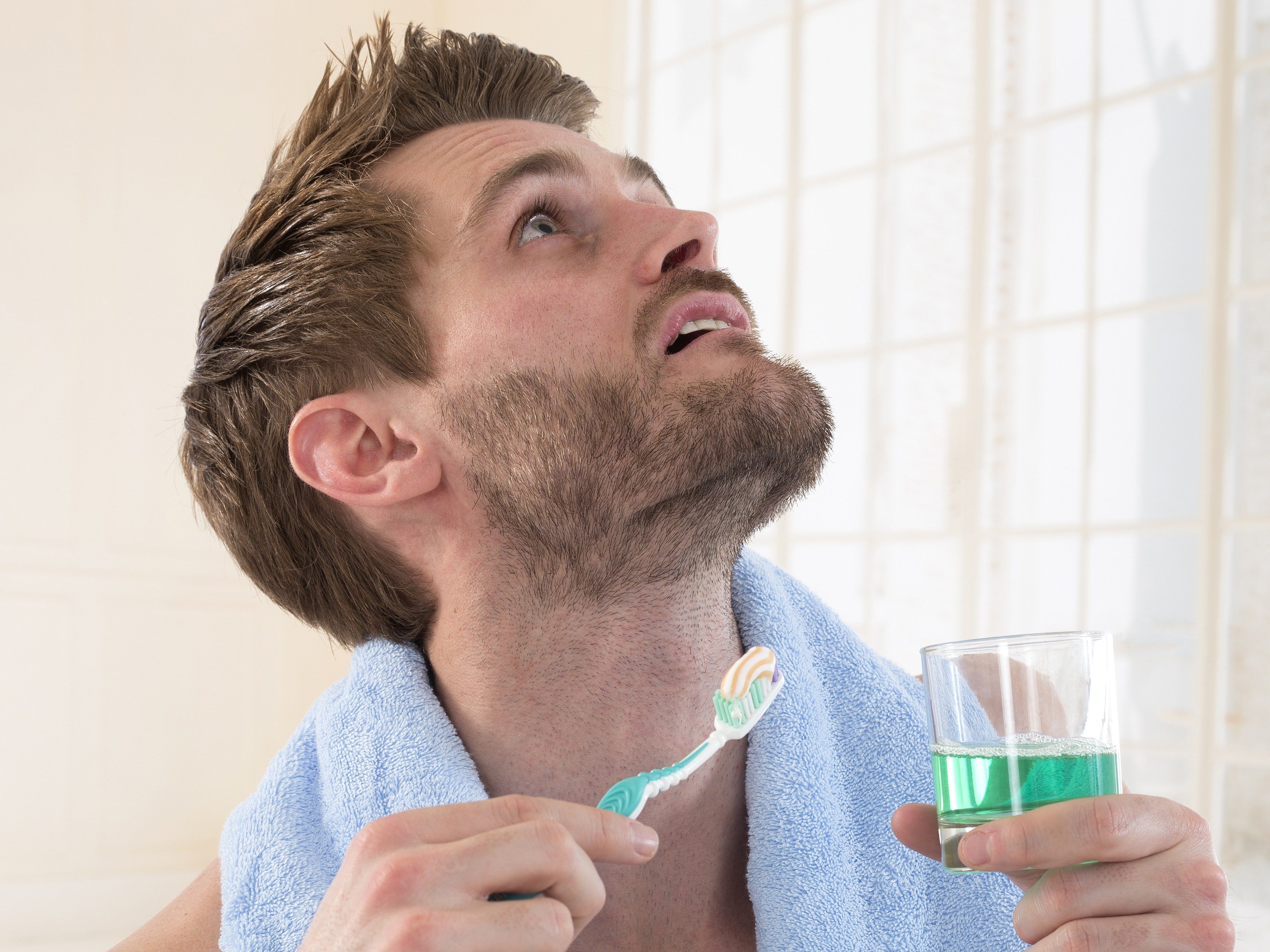
6. Use Alcohol-Free Mouthwash
Most over-the-counter mouthwashes have too much alcohol, which can dry out the tissues in your mouth, making them more susceptible to bacteria. Some studies even suggest a link between mouthwashes containing alcohol to and an increased risk of oral cancer. To be safe, be a teetotaller when it comes to choosing a mouthwash.
Check out more healthy beauty tips!
Explore Reader’s Digest Health.